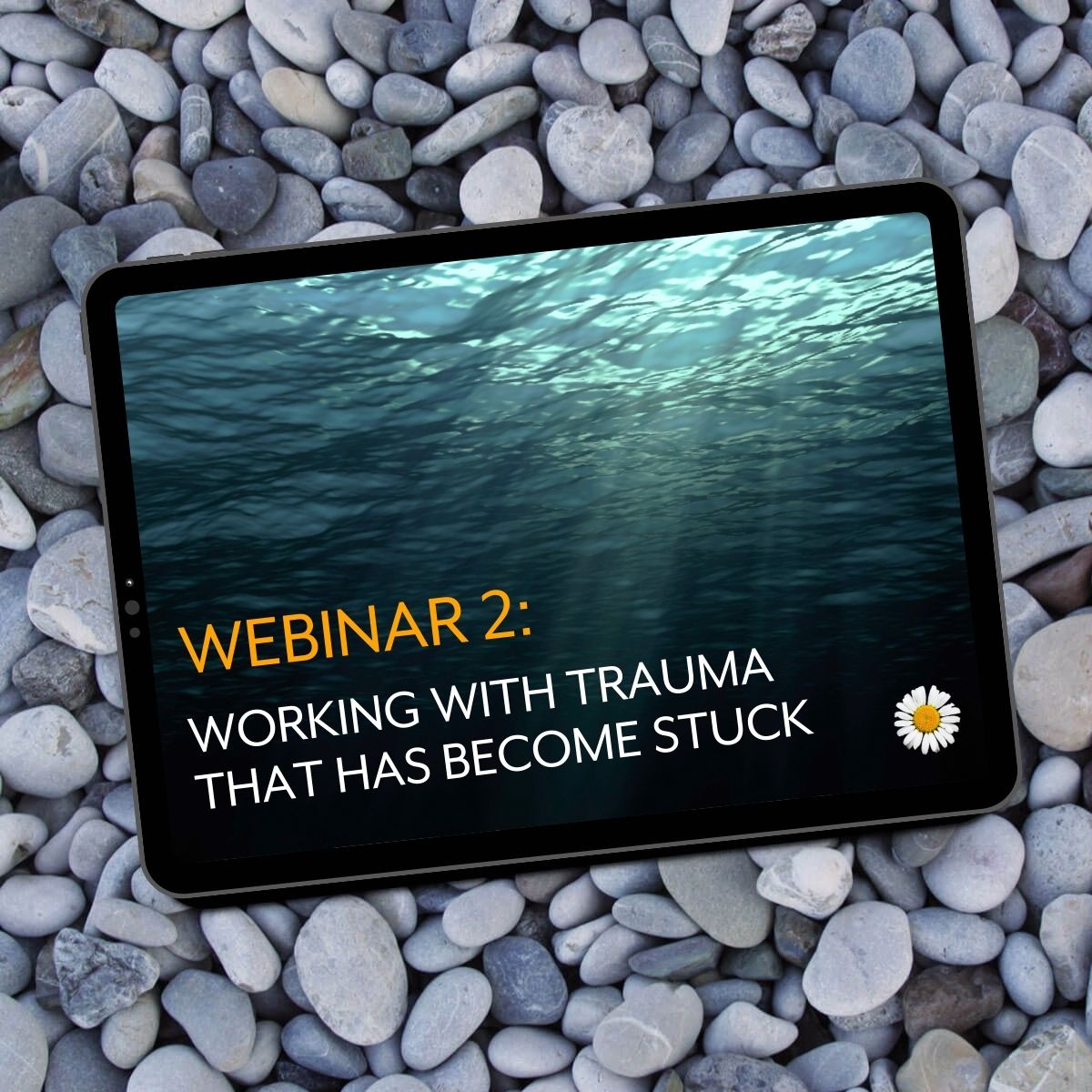How do we help survivors of trauma get unstuck from the debilitating symptoms of trauma, which sometimes hold them in a vice-grip of powerlessness, hopelessness and despair? Why do stuckness and trauma seem to go hand-in-hand?
Join me as I look at the neurobiological underpinnings of stuckness and how we can help survivors of trauma be empowered to move safely beyond suffering.
“Very good – everything Carolyn says just makes sense, and I will have to think about some of the things she said further. It’s amazing how when something is put in such a way that it then seems obvious, whereas I would never have considered looking at it in that way before. Carolyn’s website etc has been recommended to me by therapists, and even though I personally hate the word trauma, especially in reference to myself, she kind of makes it all sound so normal that it makes me feel better. Also excellent value for money.”
“Superb, really informative and reassuring that this is something I can work with. So human and down to earth in delivery. Theories are referred to but the ‘basics’ are celebrated as the valuable stuff, I’m so enlightened around the ‘transference’ explanations, that if we are feeling stuck too, it’s ok, we are going to, it’s part of that, ‘being alongside’.”
“Just wonderful. I am training as a psychotherapist and have decades of personal abuse behind me. For anyone that doesn’t understand trauma – you put it across beautifully, clearly and succinctly.
You speak wonderfully well, Carolyn. Keep doing what you are doing.”
“Fantastic. Gave a real insight into how the client feels and practical tips on how to support my clients better. It has already had a significant impact on those that I am supporting.”
“Considered, informative, felt the personal story from Carolyn really humbing and helpful. Paced well and I’m really glad I made time to watch it.”
“I could really relate to this webinar as a therapist but also as a human being. I often feel like I’m not good enough or qualified enough to be a successful counsellor… in reality I know I am but circumstances often make me doubt myself. I also had to confront my own stuckness which became apparent and out in the open as I listened. The emotions that it brought about in me personally as a survivor of an emotionally abusive relationship were also a reminder of the continuing work I have to do for me.”
“Everything felt so relevant and was explained so well. Delivered, as always, with warmth, humanity and gentle humour. Perfect.”
“Complex issues very clearly communicated; good mix between ‘science’ and lived experience; compassionate and hopeful stance.”
“Being stuck can be incredibly triggering for a therapist, but after listening to Carolyn and her take on stuckness it is not something to be feared. Always checking in, ‘just notice, just get curious’ for us as well as giving this to clients will bring all parties back into the green zone, lower anxiety and reduce that stuckness – perfect!!”
Course includes:
- Available instantly upon purchase
- 60-90 minute presentation plus 60-90 minute follow-up Q&A recording
- 2.5 hours of CPD with certificate upon completion
- Downloadable resources and additional reading for a comprehensive learning experience
- Full transcript
- Videos available to stream or also downloadable for offline viewing
- Lifetime access
- Start/stop and return as often as you like
- Easy to use: only needs a web browser
Individual licence only: for multiple users and information about discounts for organisations, please click here.
Working with trauma is difficult and complex and many of us as trauma survivors find ourselves stuck, sometimes for years, trying to resolve the hold our traumatic past has on our lives. In therapy we can find it hard to make progress, feeling that the nearer we get to their trauma, the more dysregulated we become. It can feel like a downward spiral of powerlessness, helplessness and despair to resolve the powerlessness, helplessness and despair that is intrinsic to so much of our traumatic experience.
- Why is this?
- Why does working with trauma so often seem to exacerbate the symptoms of trauma, which in turn keeps us stuck in the trauma?
- What can we do differently?
- Why is ‘stuckness’ such a common phenomenon, especially when it comes to complex trauma, and what are the neurobiological hallmarks of this?
- How might stuckness actually be a survival response, and our best attempt to survive?
In this second episode in the ‘Working with Trauma’ webinar series, I explore stuckness from a variety of angles: neurobiological shutdown, shame, powerlessness, freeze, the red zone, and learned helplessness, amongst others. What can we do to get ‘unstuck’ and how can we do it in such a way that it doesn’t propel us into chaos and distress? How can we resolve the symptoms of trauma when they’ve become deeply embedded, and what is it exactly that we’re trying to resolve?
These on-demand webinars are aimed at counsellors, psychotherapists, psychologists and all other mental health professionals (including trainees), or anyone working with survivors of trauma. They may also be of interest and relevance to survivors of trauma themselves.
To see the full series, please click here.
